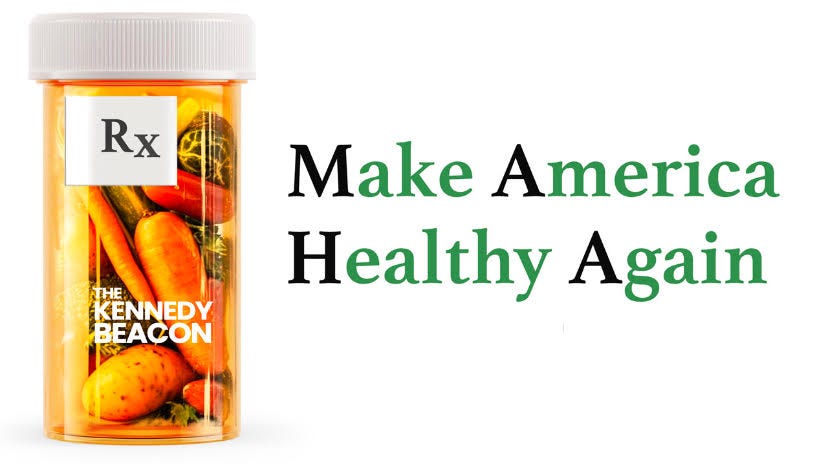By Adam Garrie and Louis Conte, The Kennedy Beacon
The Make America Healthy Again (MAHA) movement is more than a political movement. It is a movement in our homes, our communities, our schools, and our places of worship.
It is a movement of everyday people who are concerned about the toxicity of our foods, the dangerous side effects of our medications, and the corporate capture of our government agencies that claim to be keeping us safe.
MAHA rose out of the long-standing medical freedom movement. In 2023, Nicole Shanahan and Robert F. Kennedy Jr. began using the phrase to denote a political movement combining a broadly libertarian social message with the policy solutions advocated by health freedom campaigners.
Speaking recently in a town hall hosted by Russell Brand, Kennedy said he and Tulsi Gabbard have been appointed to Trump’s transition team and tasked to change federal health policy, among other things. How will they do it? As Kennedy told Brand, by “trusting the American people” – instead of corrupt government agencies.
Kennedy said restoring democracy is about “restoring choice, informed choice” – not the government telling citizens what they must do as it relates to their health.
Referencing the MAHA movement more directly, Gabbard said, “When we talk about how to Make America Healthy Again, it is nutrition and it is your physical health, well being. But it is also so much greater than that – and it encompasses so much more about what we are doing and how we are caring for ourselves and our loved ones as individuals.”
In other words, Gabbard suggested, there is a fundamental spiritual component to MAHA that has the capacity, person by person, to reshape our country.
The acronym MAHA, of course, is a nod to former president Trump’s MAGA movement but is simultaneously politically ecumenical, drawing on support from former Democrats, Republicans and independents alike.
Politicians have long spoken about the vital importance of a shared American Dream. The Founding Fathers described this as the right to “life, liberty and the pursuit of happiness.” It is important to ask ourselves if we have fallen short of these noble goals. What is being alive if our lives are cut unnecessarily short? What is liberty if politicians decide what is best for us? What is the pursuit of happiness if we are struggling with disease and paying the devastating physical and economic cost of these diseases?
The MAHA movement fervently asks and answers such questions as it challenges the status quo while aspiring to Make America Healthy Again.
President Trump coined the term MAGA in 2015 when he ran for president with the aim of restoring national vitality. Even before this, Kennedy was waging a steadfast campaign to restore the health of the American people.
He has drawn inspiration from earlier days in the American experiment. As Kennedy often says: when his uncle John F. Kennedy was president, the U.S. was the healthiest nation in the world. Hunger was virtually unknown; so was obesity. The fresh meats and vegetables that were delicacies abroad filled the shelves of air conditioned supermarkets from coast to coast.
America in the early 1960s was also a time when the average person did not require an expensive cocktail of drugs and vaccines to gain the perception of wellness. Somewhere between then and now, we took a wrong turn. No one has cataloged these changes more thoroughly than Kennedy.
If Trump wins the election, Kennedy, Gabbard and a growing tribe of health-conscious leaders will set about stripping federal agencies of their deep-seated corruption, designed to keep us unhealthy, while pursuing the multi-faceted ideals that undergird the growing MAHA movement.








Make The World Healthy Again = MTWHA. Big Pharma needs stop betraying the people of the world for profits.
MAHA starts by individual people taking responsibility for their own health instead of expecting someone else to take care of them.